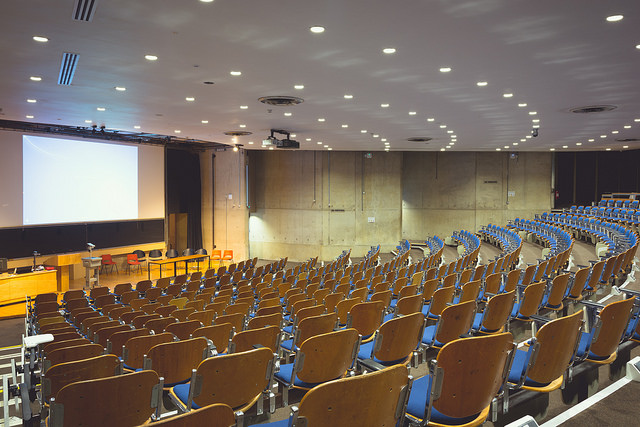Plans to reconfigure Trinity’s two-subject moderator programme, commonly known as TSM, so as to introduce new subject combinations for students entering in the 2018/19 year, have been delayed until at least 2019, with an external review of entry routes into all subject combinations to be undertaken.
The proposal had sought to replace the current TSM system and many of its joint degrees with new combinations of subjects, including some subjects that do not currently exist under the TSM programme, such as law or political science. It would also mean that some existing subject combinations, and the TSM name, would no longer apply for students entering in 2018/19.
Now, however, College is aiming to introduce the changes for the 2019/20 year, after an external review of its two-subject combinations, both TSM and non-TSM.
The reconfiguration had been under pressure to settle on new course combinations in time for the CAO deadline for new entrants. Speaking to The University Times, Trinity’s Vice-Provost and project sponsor of the Trinity Education Project, Prof Chris Morash, stated that, in looking to change the course entry routes, “the wheels just kept getting stuck in the mud”.
“With the entry routes the deadline was just looming and it was kind of forcing decisions. So we’re going to do an external review of TSM entry routes and we’re looking at 2019 for change at the earliest”, he continued. “It just needs the time to get it right.”
Speaking to The University Times in November, Dale Whelehan, Education Officer of Trinity College Dublin Students’ Union (TCDSU) noted that the plan was “ambitious”, with plans to have new entrants in 2018/19 working from the new joint course structure while second, third and fourth-year students continue to work from the existing TSM structure. “We are under a lot of pressure to get a lot done in the next few months”, Whelehan had noted.
In November, Morash stated to The University Times that the College was still “modelling the effects on CAO entry”, adding that it was “mindful of the wider sectoral movement to reduce course codes”. “However, the TSM programmes are unique in Ireland in their structure, and there are many valuable and distinctive aspects of what we do at Trinity that are made possible by that structure”, he continued, stating that “elements of it will certainly be preserved”.
The reconfiguration of the TSM programme comes as part of the Trinity Education Project – the ongoing reconfiguration of Trinity’s undergraduate programme and a reimagination of how Trinity’s students are taught and assessed. The project aims to see a number of changes, including a new academic year structure with a Christmas exam week and an earlier start to the teaching term, as well as electives, stand-alone, university-wide modules available to all students across all disciplines. It will also feature approved modules – modules within or complementary to the student’s core field of study – implemented for students entering in the 2018/19 year.
Morash stated that attempting to settle on new entry routes was “taking over the Trinity Education Project”. “It was one of those structural, procedural reform pieces that was just such a big job in its own right that it was taking up all of the air in the room. The sensible thing was just to put that somewhere else. And that is a project in its own right, it’s a job that needs doing”, Morash continued. “We need to be sure that it allows us to run small programmes and language programmes and gives great student choice and great security of numbers to departments. They know how many students are coming in so they can plan, and we want to keep all of those bits.”
The delayed changes to the entry routes will result in what Dr Sarah Smyth, Course Director of TSM, to The University Times in an email called a “staged introduction” of the Trinity Education Project, allowing departments and schools to think through certain changes for 2018/19 alongside other areas of College under the Trinity Education Project, such as the electives and approved modules. “All of the other stuff can change without the entry routes”, Morash added.
“I don’t think that is a bad outcome”, Smyth stated.
“I think it would be very useful to canvas students’ opinions on more-than-one-subject combinations: why two subjects, for instance, and not one; what appeals to students about the current offering; what other offerings students would like to see being made available; whether the notion of a three-subject entry route would be attractive”, she added. “It would be good to see some discussion in the public domain about the strengths of what we do and the opportunities available to us through this reform, rather than the constant focusing on problems”, which include “entry routes, number of CAO codes, unfilled quotas”.
“This is not to deny the very real problems that TSM students encounter”, Smyth continued, stating that such problems are being worked on by the Trinity Education Project. “Nor does it deny the very real challenges and concerns colleagues have about the implementation of [the Trinity Education Project].”
TSM is one of the most popular programmes in Trinity, with 328 of the new entrants to the College in 2014/15 entering through TSM, compared to 893 in the entire faculty of Arts, Humanities and Social Sciences.
The programme is made up of 26 subjects, including languages, histories, humanities and maths, with 183 possible combinations. Currently, students are able to choose from a variety of pre-determined, two-subject combinations on their CAO form, studying both subjects for the first three years of their degree. In “pattern B” TSM combinations, students choose one subject for their final year, while “pattern A” combinations give students the option of studying both subjects for the full, four years. Under both patterns, students graduate with a Bachelor of Arts, with both subjects named in the degree title.







